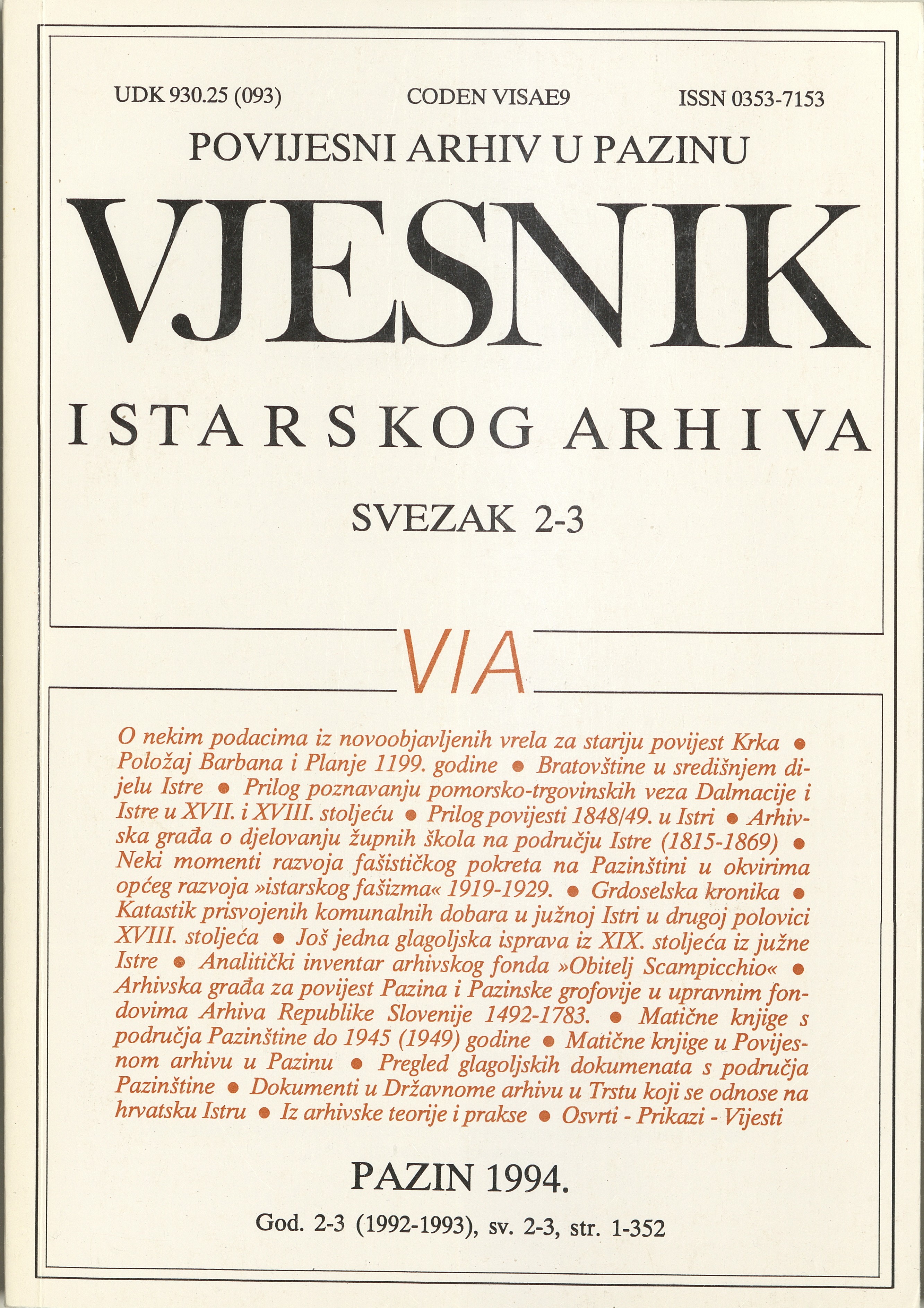The position of Barban and Planja in 1199
Abstract
The Author analyzes the documents dated 10th February 1199 and 9th (not 4th!) March of the same year, in which the representatives of the communes of Barban and Planja (today Prnjani, 4 km North of Barban) pledged to pay the quarter (i.e. part of the church tithe which belonged to the civilian authority) and the herbaticum to the commune of Pula (according to the first document), or to the German knight Gerold »and associates« who lived in Pula (according to the second document), submitting themselves to the authority of the commune of Pula. The two documents, according to various authors who have examined them (Benussi, De Vergottini, Gruber, Kirac, C. De Franceschi, Antoljak), would be a proof of an aggressive expansion of the commune of Pula. The Author refutes such opinions and argues that the end ofthe 12th century was for Pula a very unfavourable period for an expansionist and aggressive policy, because in 1194 the town was conquered and plundered by the Venetians, who also demolished its walls. The Author argues that these documents were the result of a premeditated activity by the powerful Goritian Count Engelbert III, who owned the feud of St. Appolinaris, for which he disputed with the Archbishop of Ravenna at the very end of the 12th century. By relinquishing his right over Barban and Planja, Engelbert III wanted to win over the sympathy of the commune of Pula and of Gerold, so that the verdicts in favour of the Archbishop of Ravenna would remain a dead letter. It is known that Engelbert III succeeded in his aim to keep the feud of Sv. Appolinaris and later he gave it to the Geroldi family. So, the tactics used by Engelbert III, to keep friendly ties with Pula by means of documents from 1199 regarding Barban and Planja, proved successful.
Downloads
Published
Issue
Section
License

This work is licensed under a Creative Commons Attribution-NonCommercial 4.0 International License.

